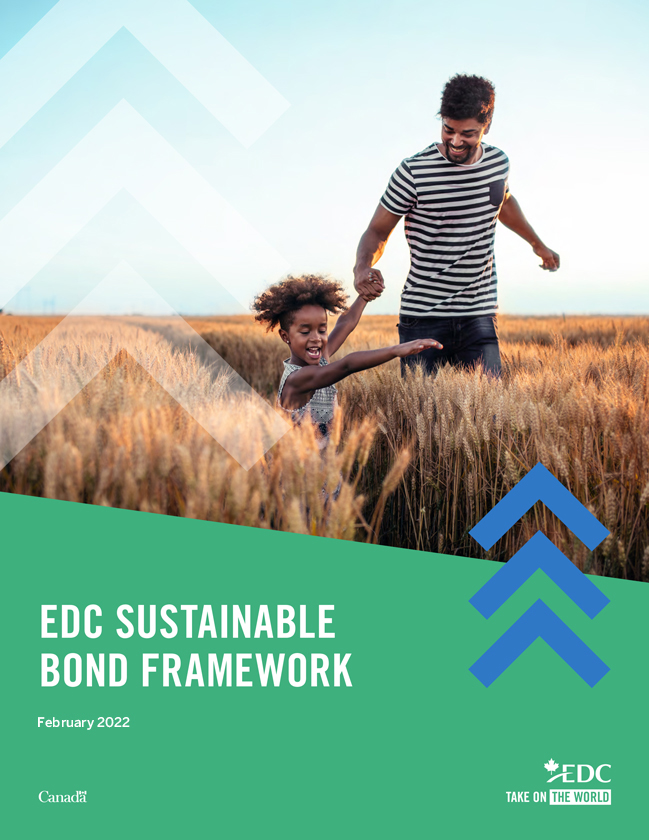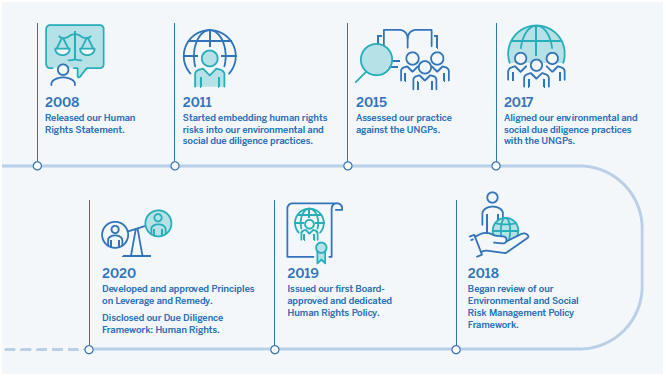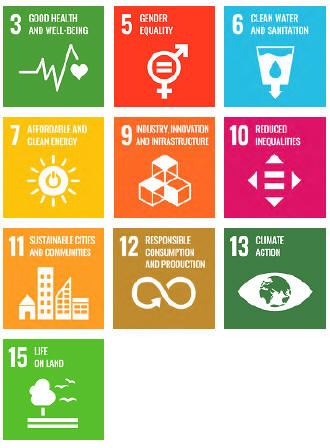| | | | | | |
| | | |
| Clean Transportation | | Financings related to the acquisition and/or upgrade, development, manufacturing, construction, operation, and maintenance of dedicated low-carbon transport assets, such as: | | 
|
| | • | | Energy efficient private transport: |
| | | | – Electric or hydrogen vehicles; |
| | | | – Hybrid vehicles (with CO2 emission thresholds of <75gCO2/passenger-km(p-km)); and |
| | | | – Hydrogen fuel or electric charging stations. |
| | • | | Energy efficient public transport: |
| | | | – Electrified rails, trams and buses; |
| | | | – Public bus fleets powered by alternative fuels (i.e., electric/hydrogen fueled buses with no direct emissions or hybrid buses with CO2 emission thresholds of <50gCO2/p-km); and |
| | | | – Hydrogen fuel or electric charging stations. |
| | • | | Transportation infrastructure, including expansions and capacity improvements of metro/train networks and station upgrades. |
| | | |
Sustainable
Water and
Wastewater Management | | Financings related to activities that improve quality, reliability and conservation of water such as: | |  |
| | • | | Infrastructure and technologies that help collect, treat, recycle or reuse water; |
| | • | | Water metering activities to support conservation initiatives; and |
| | • | | Water capture and storage infrastructure, including storm water management systems, water distribution systems, aquifer storage and sewer systems. |
| | | | |
| Climate Change Adaptation | | • | | Financings related to activities that improve infrastructure, information support systems and communications technology to increase resilience against physical impacts of climate change, such as sea level change, extreme weather events and natural disasters (e.g., flood mitigation barriers and wildfire mitigation and management); and | |  |
| | • | | Financings related to projects that develop information support systems that monitor GHG emissions and early warning systems. |
| | | |
Circular
Economy Adapted Products, Production Technologies
and Processes | | Financings related to projects or businesses that facilitate or carry-out circular economy activities, including: | |  |
| | • | | Substitution of virgin raw materials with 100% secondary (recycled or reused waste) materials (e.g., fabrics, metals, fibres, wood and mechanically recycled plastics) in manufacturing and industrial processes; |
| | • | | Production of products that can be recycled or composted where the input feedstock is from recycled/reused waste; |
| | • | | Development, manufacturing and distribution of sustainable packaging certified bya recognized third-party certification such as the FSC, PEFC, SFI and Recycled Paperboard Alliance (“RPA 100”); and |
| | • | | Minerals-based materials recovery or recycling in mining and industrial materials processes post-production. |
| | | | |
| Green Buildings and Infrastructure | | • | | Financings related to the acquisition, construction, operation or maintenance of energy efficient commercial, residential or public buildings (i.e., certified green buildings such as LEED with a minimum of ‘Gold’, BOMA Best with a minimum of Gold, BREEAM with a minimum of ‘excellent’, ENERGY STAR (85 or above), Toronto Green Standard (v2) Tier 2 or higher); and | |  |
| | • | | Financings related to activities that support the refurbishment of commercial, residential or public buildings which result in energy savings of 20% or more over energy consumption baselines. |


















